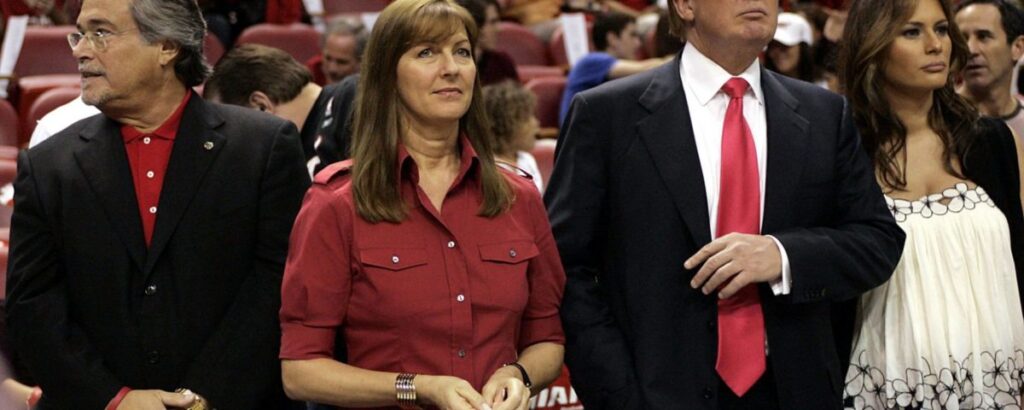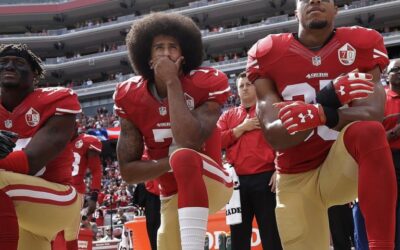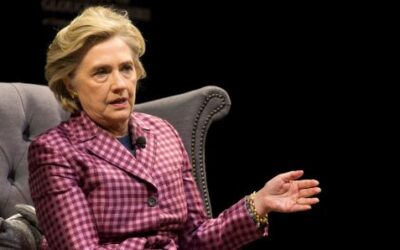Misplaced Trust and Saving the Cruise Ship Industry Post COVID-19
Photo credit: Heat Nation
The MacArthur Causeway in South Miami is the southernmost bridge over the waters of Biscayne Bay, connecting downtown Miami to South Beach. On any given day you will see more than a half dozen super sized cruise ships docked in the Port of Miami, the world’s largest passenger port and also known as the “Cruise Capital of the World.”
The port is also home to Carnival Cruise Lines, the world’s biggest cruise operator with its many subsidiaries like Holland America which operates the “Zaandam” cruise ship.
After the mishap of the Diamond Princess it is hard to believe that as the COVID-19 pandemic reaches a global toll of 50,000 deaths, the Zaandam is one of about 18 cruise ships worldwide still completing journeys or awaiting disembarkation as of March 28. The ship has been stranded at sea for more than two weeks with dozens of passengers sick with the COVID-19 virus and four passengers dead. Somebody failed miserably here and questions need to be asked of the professionals that the public rely on for protection. Passengers continue to receive a false sense of security, especially when cruise ship goers step onto passenger packed vessels two months after we should have learned the fatal lessons from the mishandling of the Diamond Princess.
In late January as we watched the Coronavirus breakout in China, our first cases started to emerge on cruise ships. We all watched the beginnings of the outbreak aboard the Diamond Princess, also owned by Princess Cruises, a Carnival subsidiary. We watched in disbelief as the Diamond Princess was quarantined for nearly a month in what the head of the Centers for Disease Control and Prevention, Dr. Anthony Fauci said was a failure. Specifically referring to the quarantine of the ship which started with 10 coronavirus cases and ended with more than 700. “People were getting infected on that ship. Something went awry,” Dr. Anthony Fauci added. By mid February infected passengers aboard the Diamond Princess represented more than half of all cases outside of China.
The Diamond Princess gave the West a first glimpse of what was to come. Looking back we now realize that keeping passengers limited to confined spaces only helped the virus to continue to spread. ”The quarantine was not justified, and violated the individual rights of the passengers while allowing the virus to literally pick them off one-by-one,” Dr. Amesh Adalja from Johns Hopkins said.
From the onset of the virus outbreak U.S. President Trump has been most protective of the cruise industry, repeatedly stating that he is intent on guarding the industry from any financial fallout. Meanwhile as the President pledges his support for the industry, both the State Department and the Center for Disease Control and Prevention (CDC) warned U.S. citizens, particularly those with underlying medical issues, not to travel by cruise ship. Despite these warnings the cruise operators had to themselves voluntarily suspend sailings out of U.S. ports as late as March 17th and globally on March 24th.
Today, April 1st, Carnival Cruise Lines (CCL):NYSE raised $4 billion in debt bonds which are to mature in 2023 at an interest yield of 11.5 per cent to assist them through what will be a challenging time. The debt auction was oversubscribed but came at a high price. By comparison, Carnival borrowed 600 million euros at a 1% yield just this past October.
President Trump has been a long time friend of Carnival Corporation Chairman Mickey Arison, whose company helped sponsor Trump’s reality TV show ‘The Apprentice’ for several years. Arison, who is also the owner of the NBA’s Miami Heat resides in Bal Harbour, Florida aboard one of his two 200 foot yachts, which he uses as his home. For many years community activist groups like 1Miami have organized protests to rally in small craft boats around Arison’s gleaming Mylin IV yelling through a bullhorn, “stop sinking our city!”. The group also rallies outside Carnival’s annual shareholders meeting pressing the company to pay its fair share of taxes and to hire local Americans.
Along with his sister Shari, Micky is the heir to the Carnival cruise company which their father Ted Arison co-founded in 1972 starting with one single ship. Ted also helped to bring the NBA team, Miami Heat, to the city before son Micky bought the franchise in 1995. Senior Arison registered his Miami based Carnival Cruise ships in Panama to avoid taxes and continued to make billions from tax paying U.S. passengers. In 1990, he abandoned Miami, denounced his U.S. citizenship, and returned to his home in Israel with his billions in hand to avoid estate and inheritance taxes.
Having faced the criticism of Carnival not paying its fair share of taxes many times before, Arison junior took a page from his father’s book suggesting that he would take the cruise line to China if he were forced to pay higher taxes.
Carnival makes a lot of money in the U.S. but is subject to only a 1.0 percent tax rate. Carnival is headquartered in Doral, Florida, but incorporated in Panama allowing the company to legally avoid paying most U.S. taxes. Royal Caribbean is incorporated in Liberia, while Norwegian Cruise Line is incorporated in Bermuda.
Since 1972 legal Tax Code loopholes have allowed Carnival to pay less taxes and continue to benefit from the use of roughly forty federal agency resources, like the U.S. Coast Guard and infrastructure spending. In the case of the Port of Miami, cruise goers travel under the waters of Biscayne Bay in two underwater tunnels to get to their ships luggage in hand. Carnival rings the register as passengers storm aboard and regular taxpayers foot the bill. Anyone who has a property in Miami has seen their property taxes rise as much as 20.0 percent in a single year.
In the year that began with pressure put on the investment community to focus on ESG (environmental, social and governance) the cruise industry’s behaviour has cast a dark light on the movement. Though all fossil fuel-powered modes of transportation pollute our air and oceans, these ships are among the worst environmental polluters. They emit more sulfur dioxide than all of the passenger vehicles in Europe combined. Cruise ships also dump tremendous amounts of waste with impunity afforded to them by the laws of the countries in which they incorporate – something they have repeatedly been fined for.
President Trump has continually said that the Cruise Ship industry pays a lot of taxes and employs a lot of U.S citizens. Either the President doesn’t know or is pretending not to know the truth – these companies are not incorporated in the United States, but instead shelter themselves in countries with very different labor and tax. Most cruise ships in fact employ workers from Europe, the Caribbean islands, India and the Philippines. In the case of the Diamond Princess, 113 Indian crew members banded together and pleaded for their government to rescue them, sharing videos of their ordeal on social media while becoming sick and working through exhaustive illness. University of Toronto epidemiology professor David Fisman said, “They’ve basically trapped a bunch of people in a large container with the virus.”
An argument can also be made for other companies that may require a bailout like Boeing , American Airlines and Delta who all engaged in corporate buybacks and corporate compensation practices that have now left them vulnerable in the wake of the outbreak. Unlike the cruise industry, these companies are in fact big job creators for U.S.citizens.
Trump’s repeated insistence on providing a helping hand to the cruise industry does shed light on why health officials and country leaders did not shut down the ships earlier, before so many lives were lost aboard these vessels.
Given that our global leaders and health officials continue to allow cruise ships to travel out of other countries leaves room to suggest that strong fines should be levied against these operators that have continued to put so many people’s lives at risk. The Diamond Princess disaster and other cruise operators have been bad actors in this outbreak putting profit before society’s well being.
As of Thursday the Zaandam and its sister ship Rotterdam have been allowed to dock in Fort Lauderdale after Holland America agreed to a strict set of protocols after Mayor Dean Trantalis expressed community concerns over allowing the ships to dock, which could contribute to the virus spreading within the local area there. The Zaandam left Buenos Aires on March 7th for a two-week voyage through South America intending to dock in Chile on March 21th before being turned away. Four people have died on the ship, nine have tested positive for COVID-19, and 179 more have flu-like symptoms.
Florida Governor Ron DeSantis, who originally opposed the ships docking in his state, said on Wednesday that he just wants “everyone to be safe.”
President Trump’s ongoing insistence to help the cruise industry caused a lot of concern among Democtratic senators calling for oversight of a $500 billion fund aimed at helping companies hurt by the coronavirus. Republicans originally set Treasury Secretary Steven Mnuchin to oversee how the funds are dispersed as part of the more than $2 trillion stimulus bill. Activists warned that lack of oversight by the Special Inspector General for Pandemic Recovery would lead to the potential for corruption in a financial package equal to nearly 10 percent of the U.S. GDP. Upon signing the bill into law, President Trump questioned the authority of the inspector general.
Treasury Secretary Steven Mnuchin says he supports an oversight committee whose members are chosen by both the Republicans and Democrats giving full transparency to the American public. Although Carnival Cruise lines tapped the bond market at high rates, it will be interesting to see in the days to come if the President continues to pledge support for friend Micky Arison’s cruise industry. Will the rhetoric continue in support of an industry that pays little to no corporate taxes and is first in line to sign up for the free relief money at zero percent versus the 13 percent Carnival lenders now command. My money is on the President still having a few billion earmarked for Carnival before breaking the bank on the backs of American taxpayers once again.



